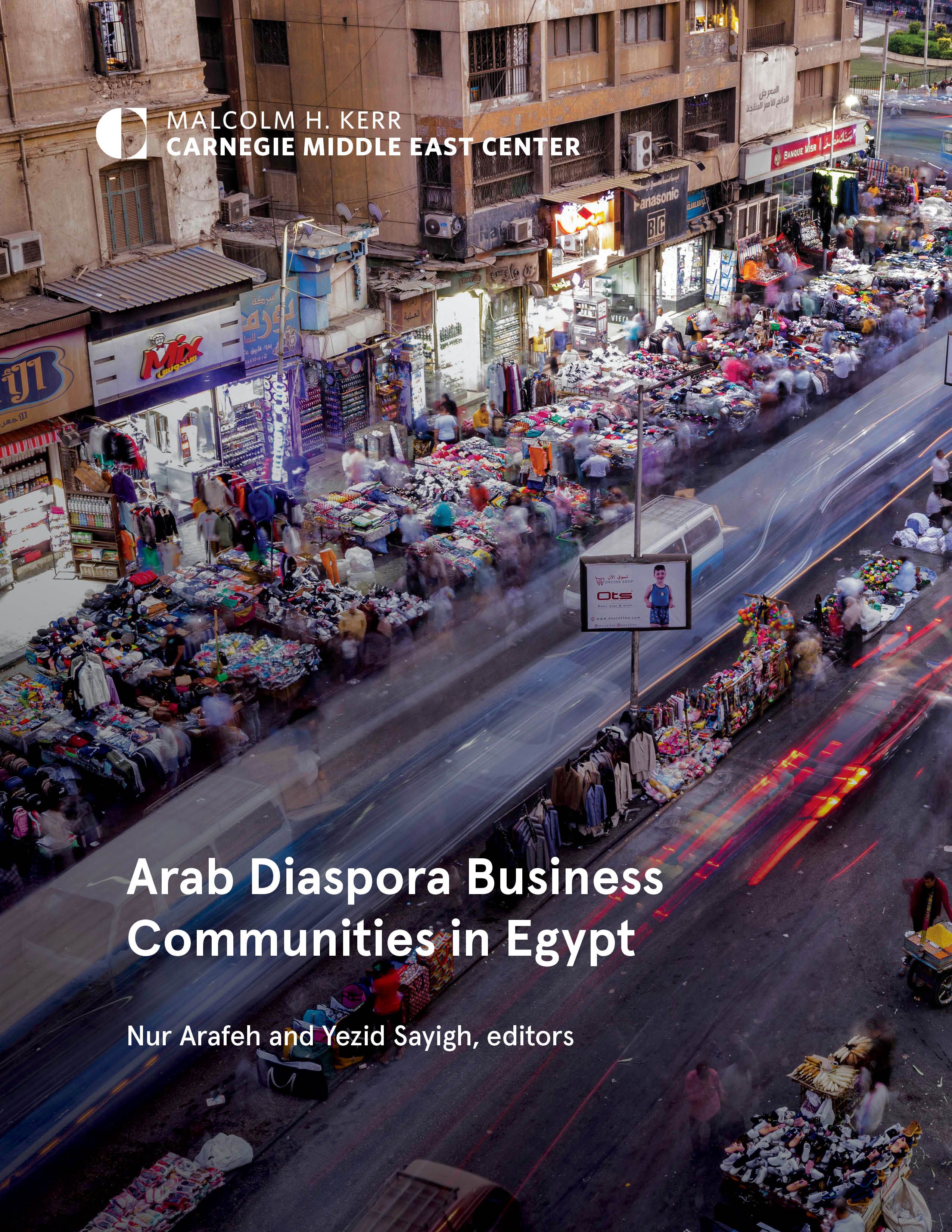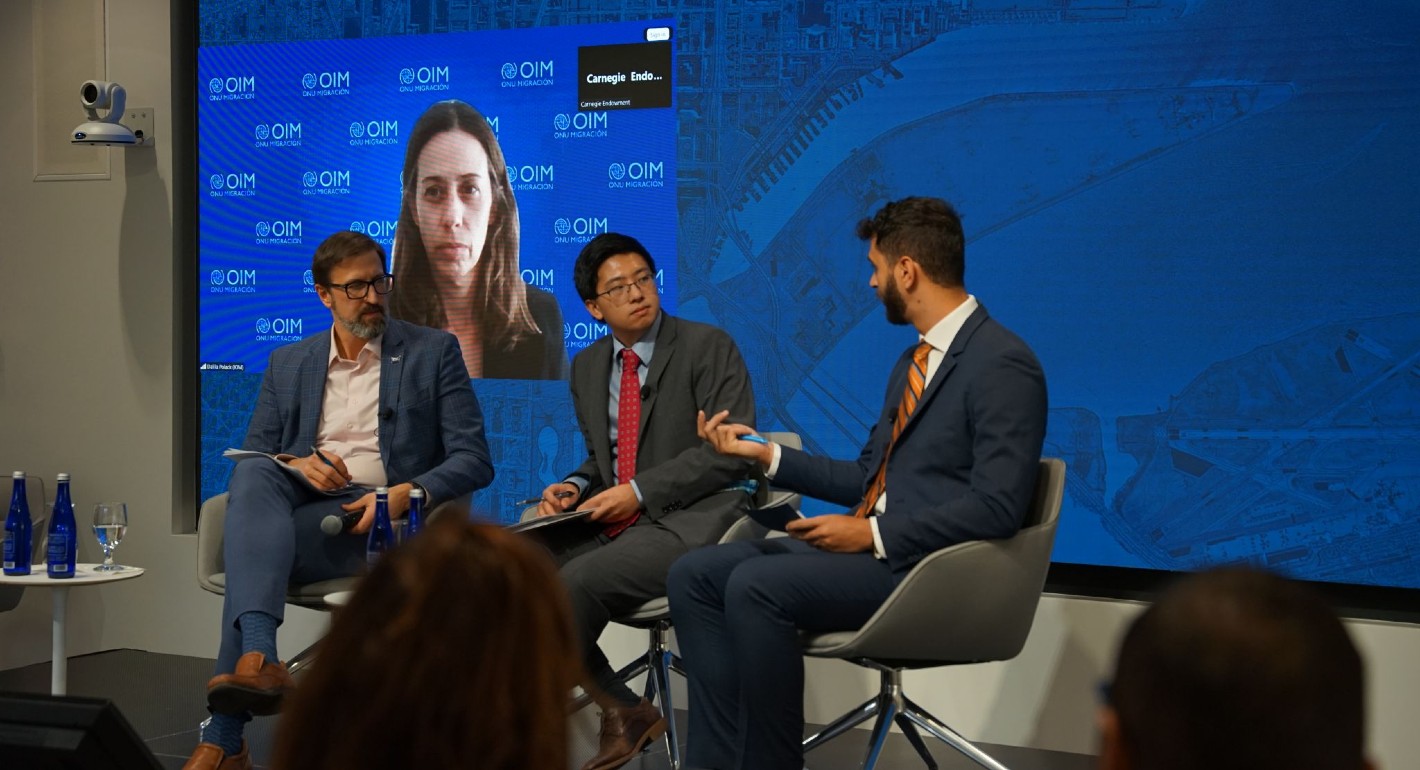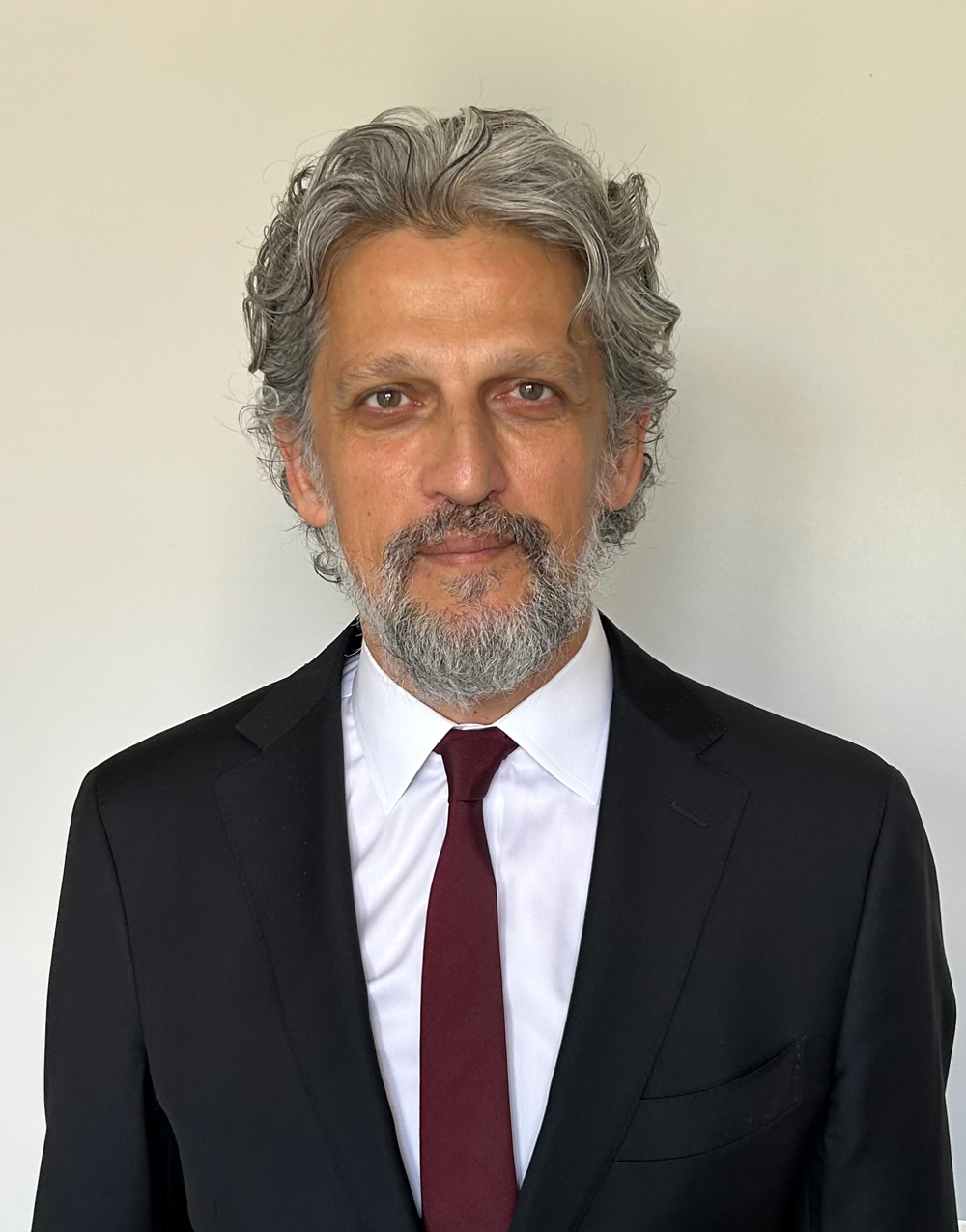The Egyptian market has long been attractive to Yemeni entrepreneurs, reflecting the two countries’ cultural and linguistic similarities and strong political and commercial ties. For decades, Yemenis could reside in Egypt without residence permits, enabling Yemini entrepreneurs to establish companies in sectors such as domestic trade, import and export, and food service. And while, in recent years, Egyptian authorities have modified entry and residence regulations for all non-Egyptians—partly in response to the influx of thousands of Yemenis fleeing their country’s civil war—Egypt still offers numerous comparative advantages: large domestic markets, political stability, improvements in business registration for some categories of enterprises, laws protecting foreign investment, tax and administrative incentives, and customs exemptions.
Yet access to these advantages is not even for all entrepreneurs. Egypt’s shifting migration policies and entrenched structural inequalities have shaped the experiences of the Yemeni diaspora community profoundly. The result is a bifurcated Yemeni expatriate business community: holders of financial capital among Yemeni newcomers are more easily able to join the established business community and find investment opportunities, whereas those with lesser means—a large majority—experience difficulty accessing private and public services, obtaining foreign exchange, or finding work, and face dwindling financial resources. Social capital, in the form of solidarity networks and community-based organizations, is therefore playing a crucial role in facilitating business opportunities for capital holders and ensuring survival for the rest.
The Role of Social Capital in Meeting Challenges
Despite the opportunities available to them, Yemeni investors in Egypt face challenges that hinder investment and undermine financial security. Interviews for this essay indicate that the government’s legal and regulatory reforms, introduced since 2017 to improve the investment environment, have also added complexity. Smaller Yemeni entrepreneurs face restrictions on business registration, protracted administrative procedures, and the requirement to obtain security clearances. Compliance means increased project costs and longer implementation time frames. The head of a Yemeni community association in Egypt, Omar Babtain, argues that larger enterprises can hire lawyers and certified public accountants to obtain licenses from the relevant authorities and meet financial reporting obligations, but smaller investors may lack adequate understanding of the licensing and security clearance procedures. Challenges to the Egyptian banking system and financial market have reduced banking loan services and limited access to credit, especially for small and medium enterprises and start-ups.
Thus, many new Yemeni entrepreneurs in Egypt in general have to rely heavily on social capital in determining their investment decisions, just like their counterparts in the Egyptian private sector do. Personal ties and networked relationships facilitate successful navigation of both formal procedures and informal practices. Social capital builds trust and facilitates the exchange of information between private businessmen, government officials, and customers. This exchange has enabled Yemeni investors arriving after the Yemeni civil war began in 2014 to capitalize on the experience and market knowledge of the Yemeni business community already present in Egypt, further enhancing their integration into the Egyptian market and helping them expand their businesses. Thus, social capital not only offers a support network, but also plays a crucial part in shaping the trajectory of Yemeni investment in Egypt by helping to identify target sectors, facilitate commercial operations, and overcome obstacles.
Legacy Enterprises
Established commercial ties and personal relationships prior to the war’s outbreak helped Yemeni investors with the decision to enter the Egyptian market and then with adapting to relevant laws and regulations and building reliable partnerships. Formation of the Yemeni Business Council in May 2021 also helped Yemeni businesses explore opportunities for investment and expansion. This council, along with the Council of Yemeni Community Dignitaries, helped formalize networks in the food, catering, textile, and real estate sectors. Some investors have extended existing businesses from Yemen, establishing new branches in Egypt, while other investors have drawn on their in-depth knowledge of the domestic market and its needs in order to partner with overseas companies.
For the period 2001 to 2021, Yemeni investments reportedly totaled a cumulative $12 billion (amount cited by the State Information Service). These investments were distributed across numerous areas: general retail and wholesale trade, import and export (particularly of food and consumer goods), poultry production, computer programming, garment production, tea production, air freight, carton manufacturing, restaurants and cafes, schools and medical centers, real estate, and media production. Yemeni investments in real estate alone were estimated at over $4.5 billion for the period 2014 to 2019, with Egypt’s New Administrative Capital receiving approximately $200 million by mid-2024. A considerable share of these assets belonged to the total number of Yemeni-owned large enterprises, whose number stood at forty-five in 2024. Some of the enterprises would likely have transferred their registration, regulation, and import and export licensing from the Ministry of Trade and Industry to the General Authority for Investment and Free Zones, established by Investment Law No. 72 of 2017, which offers various tax exemptions and customs advantages to non-Egyptian companies mainly operating in designated investment or free zones.
The influx of more affluent Yemenis since 2014 has coincided with emerging trends among the Egyptian upper–middle class and wealthy elites. Historically, the Yemeni expatriate business community has been mainly concentrated in the Dokki Faisal and Manial neighborhoods of central Cairo, but in recent years, there has been a marked transfer to affluent suburbs and satellite cities such as New Cairo, Sheikh Zayed, and 6th of October. Yet many middle-class families still face challenges in accessing private and even public services and “struggle to maintain their social status as their assets have declined in the context of forced expatriation.” Indeed, Alya Mohammed al-Mahdi, a researcher at the American University in Cairo, argues that “as their financial situation worsens over time, they may eventually fall into the third category [of Yemenis from lower socioeconomic backgrounds], requiring external financial assistance due to the hardships of finding work and the financial restrictions associated with their residency permit.” Egyptian authorities’ closing of three private Yemeni schools in early 2025 increases these difficulties, as Yemeni Ambassador Khaled Mahfoudh Bahah confirmed. The issue is of particular concern to middle-class families that seek to place their children in private fee-paying schools.
Medium, Small, and Micro Enterprises
Middle-class and wealthy Yemenis probably formed a majority of the diaspora community in Egypt up to 2014, which was estimated to number between 70,000 and 100,000 at that time. But Yemenis of limited income now form a much broader swathe of the community that grew severalfold after 2014. Recent estimates of the diaspora population in Egypt have varied widely. In early 2025, the Yemen embassy’s press officer, Baligh al-Mikhlafi, claimed that there were only 100,000 registered residents and some 150,000 “visitors .” But in 2020, he and other sources pointed to a total diaspora ranging from 500,000 to 700,000, while the Yemen News Agency (Saba) claimed 1.5 million. Only a tiny portion are registered with the United Nations High Commissioner for Refugees—8,255 Yemenis out of 941,625 registered refugees and asylum seekers as of March 31, 2025—meaning that the vast majority of Yemenis living in Egypt are tourists, students, medical patients, or other temporary residents or others who have formally registered medium or small businesses.
Medium-sized Yemeni enterprises generally avoid registering with the General Authority for Investment and Free Zones due to bureaucratic complexities, unaffordable fees, and associated costs. Instead, they register under one of the company classifications that allow for much lower starting paid-in capital. This is also the case for small and micro businesses, which face considerably more challenging conditions. Even then, the cost of starting a business amounted to 20.3 percent of per capita income in 2020, according to the World Bank.
Not surprisingly, a major obstacle is therefore the lack of capital and severely limited access to commercial lending, limiting growth prospects and sustainability. Transfers from abroad play a significant role, as they do across the Egyptian economy in general; remittances constituted 4.9 percent of GDP in 2023, according to the World Bank. In general, lack of financing makes it harder to meet the requirements for formal registration. This in turn limits access to sources of credit for medium-sized enterprises, as well as increases their legal vulnerability in case of nonregistration. Micro enterprises—defined as having paid-in starting capital of less than EP50,000 (around $1,000) and fewer than five employees—are far less likely to register at all.
Conditions for Yemeni small and micro enterprises mirror those for their Egyptian counterparts. Indeed, the two overlap spatially with other lower-income segments of migrant communities, especially in Cairo neighborhoods such as Faisal, Dokki, Manial, Ard El Lewa, and El Behouth. According to the Central Agency for Public Mobilization and Statistics, 89 percent of 3.7 million economic establishments in Egypt in 2017 had fewer than five employees, with another 10 percent falling in the category of small enterprises. According to a paper published by the Economic Research Forum in Egypt in 2014, the majority of micro and small enterprises “operate informally, which in the context of such enterprises means that many fail to fully comply with legal requirements for businesses, such as licensing, registration and tax payments.” It further states that “operating informally has proved to have a negative effect on the[ir] productivity . . . and to reduce the likelihood of the enterprise’s owner moving out of poverty.” A study by the Organisation for Economic Co-operation and Development in 2025 noted that small and micro enterprises in Egypt have an advantage in avoiding the same financial and administrative costs associated with regulatory compliance for larger companies. But it also noted their exclusion from the banking sector, and underlined that a “significant portion of new business creation in Egypt appears to be driven by necessity rather than opportunity . . . due to a scarcity of job opportunities.”
The solution for many Yemeni enterprises, and for Egyptian counterparts, is to turn to the Micro, Small and Medium Enterprises Development Agency. Established in 2017 and then expanded as part of Law No. 152 of 2020 and its implementation statutes issued in 2021, the agency has thirty-one regional offices, 890 civil society organizations, and 1,900 bank branches associated with it, making it accessible to a wide beneficiary pool. It has become an ideal option for Yemeni investors, as it requires significantly less start-up capital and has much simpler registration requirements and bureaucratic procedures than the General Authority for Investment and Free Zones does for larger enterprises. Additional support comes through donor-funded programs such as the EU-funded Masar Egaby project, which helps Yemeni (and other migrant) entrepreneurs establish private businesses through life and business training and the provision of seed funding.
The opportunity to operate within a legal structure, at a reasonable cost, is important. But the broader difficulties of navigating Egyptian bureaucracy “are significantly exacerbated for migrants” in comparison to Egyptian nationals. Consequently, “access to essential services, from residency permits to passports or medical care, often hinges on the ability to leverage social connections.” Social capital, in short, plays a crucial role in helping Yemeni investors comply with administrative and legal requirements and bypass bureaucratic obstacles. In addition to facilitating their entry into the Egyptian market, it provides both financial resources and moral support.
Unregistered micro and small businesses rely heavily on social capital to compensate for their lack of commercial registration or access to formal channels for obtaining licenses or financing. They also rely on it to reach customers. This is typical of home-based micro enterprises, often run by women who sell services such as hairdressing; food preparation and delivery; handicrafts such as jewelry, baskets, and small bags; and perfumes and incense. These enterprises sometimes take online orders, but, generally, their operations are irregular and prone to interruption. Even small and medium-sized enterprises depend heavily on “productive family” bazaars sponsored by the embassy or youth and women associations from the community to sell their products. Yemeni community-based organizations that provide psychosocial support and job training—sometimes in tandem with assistance from international humanitarian organizations—complement social capital, but they, too, face significant challenges, “including the complexities of legal registration, which lead to financial constraints, administrative and operational challenges, and tensions with both the host and displaced communities.”
Conclusion
In addition to dealing with the war conditions and capital flight in Yemen since 2014, Yemeni investors in Egypt have also had to contend like everyone else with the fallout of the COVID-19 pandemic and Russia-Ukraine war. Not merely temporal, both events have severely affected the Egyptian host economy; they have impacted the very nature of Yemeni enterprises, the scale of the risks they face, their financing patterns, and their ability to expand or even survive. Yemeni investors of all sizes have faced new challenges, including the increasing costs and administrative requirements of obtaining legal residency, the restriction of opportunities for market expansion, the tightening official oversight of financial transfers, and the declining purchasing power of their customers. Social capital, whether exercised within the Yemeni diaspora community or among Egyptian counterparts and officials, increasingly appears insufficient to overcome bureaucratic and legal obstacles to business.
Consequently, while a significant portion of the Yemeni community has remained in Egypt, a number of entrepreneurs have returned to Yemen in the past few years, attracted by the relative stability of some parts of the country or by the significant growth of the real estate market in Houthi-controlled areas where there are restrictions on capital outflows due to international sanctions and banking restrictions. The future of the Yemeni business community in Egypt will remain linked to political stability and security in Yemen, developments in the Egyptian economy, and the flexibility of Egypt’s regulatory environment as it applies to foreigners. At least for today, the community is neither passive nor merely reactive—it continually seeks sustainable strategies for survival or repatriation, rather than simply making do with temporary residency or small-scale investment projects.










